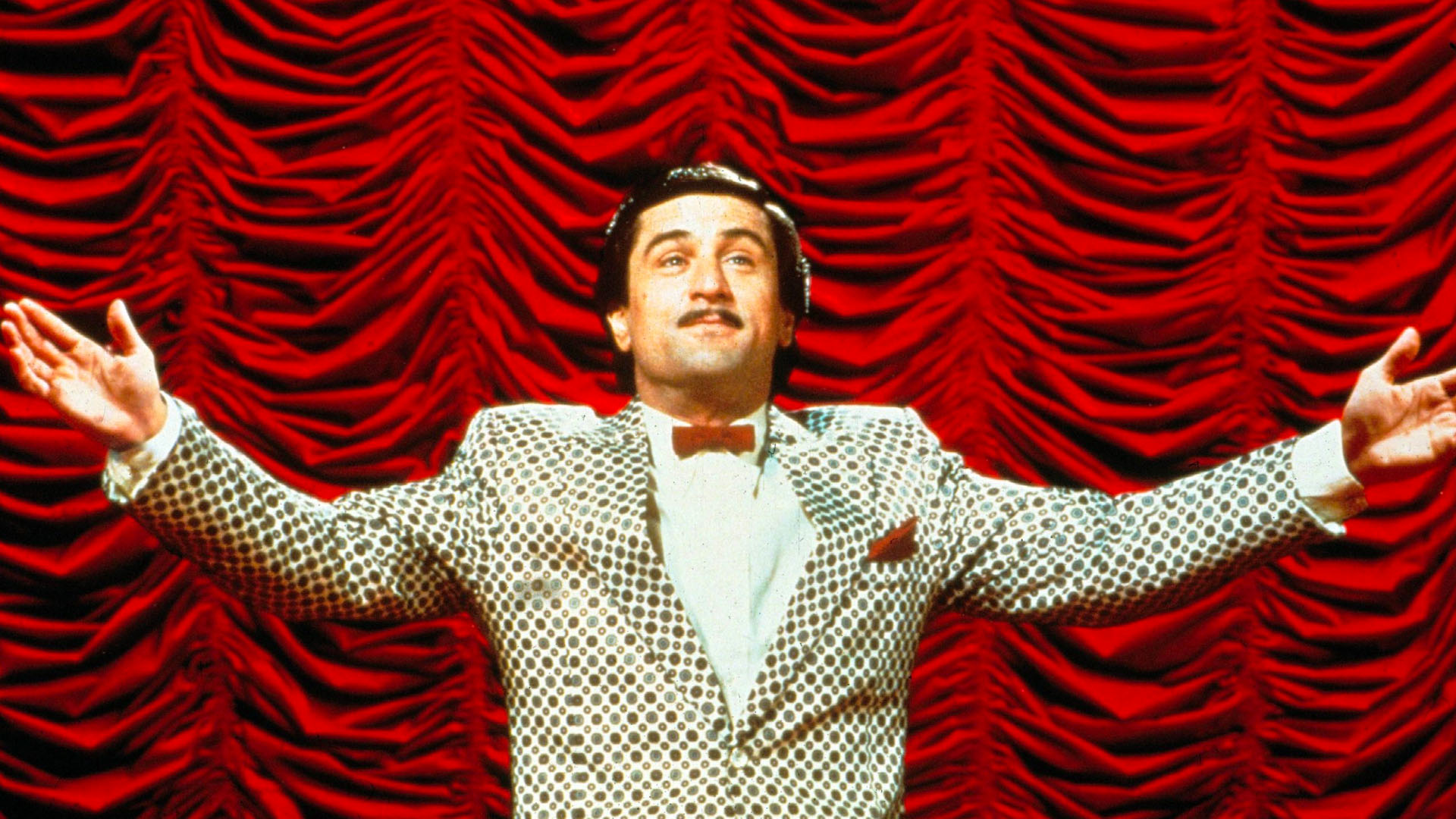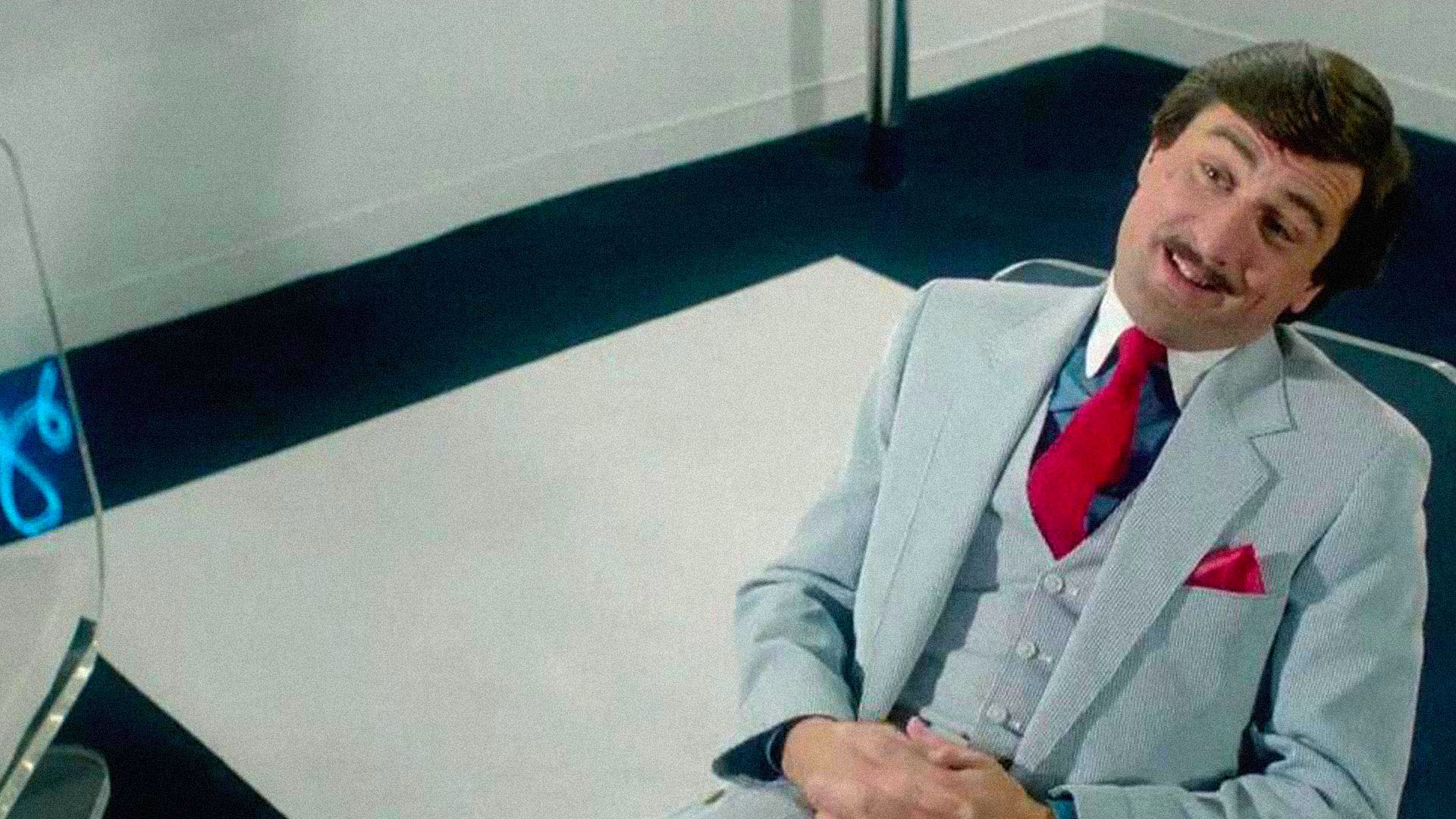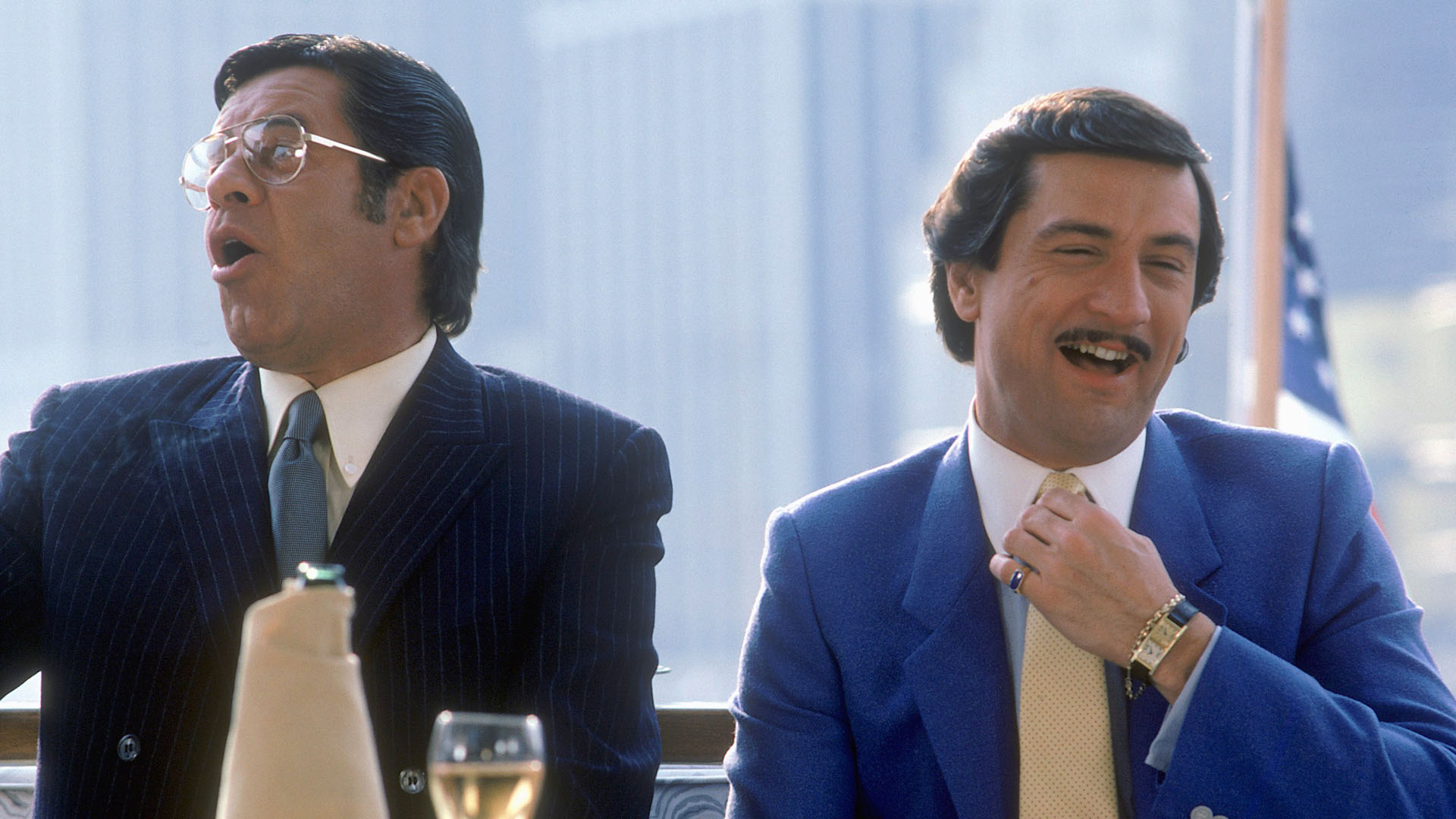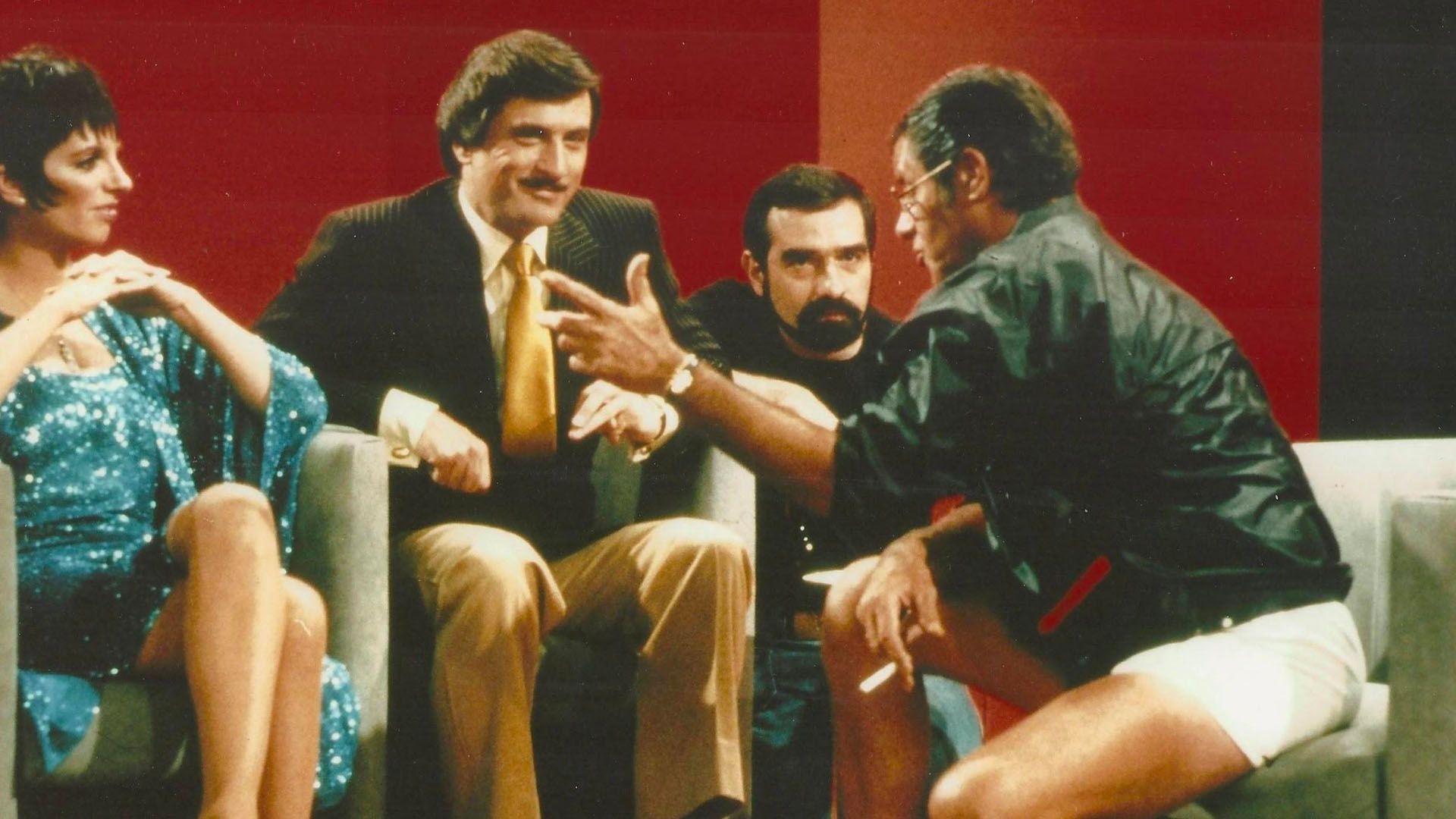Martin Scorsese’s 11th film, The King of Comedy follows desperate and aspiring comic Rupert Pupkin (Robert De Niro) as he tries to achieve showbiz success by tracking down his idol, a late talk show host. evening (Jerry Lewis). Amelia Berry revisits the 1981 film, exploring its parallels with Scorsese’s first Taxi Driver.
On March 30, 1981, John Hinckley Jr. shot and wounded US President Ronald Reagan in an assassination attempt inspired by Martin Scorsese’s 1976 film Taxi Driver. Hinckley saw himself in Travis Bickle, the protagonist of the lone vigilante played by Robert De Niro. He believed that by impersonating Bickle and gaining national attention, he could bond with teenage actress Jodie Foster, who played the child sex worker Bickle attempts to “save.” In June of the same year, Scorsese and De Niro began work on a new film: The King of Comedy.
The king of comedy is Rupert Pupkin’s story. Pupkin, played by Robert De Niro, is an autograph hunter and aspiring comedian obsessed with late-night talk show host Jerry Langford, played by Jerry Lewis. Trying to earn a guest spot on Langford’s show, Pupkin is continually pushed back by Langford and his team. Meanwhile, his obsessive fantasies grow to the point where he takes his high school sweetheart (Diahnne Abbott) on a disastrous trip to Langford’s country mansion, believing he and Langford to be close friends.
Eventually, Pupkin teams up with fellow fan Masha (Sandra Bernhard) to kidnap Langford, using Langford’s life to negotiate her way to a television spot. After the show, Pupkin is arrested, but we see that he soon gets parole and becomes a wanted celebrity, with a popular autobiography, comedy tours and an upcoming movie.

It’s a story that runs strikingly alongside that of Taxi Driver. Both films star Robert De Niro as an antisocial obsessive, indulging in power fantasies and ultimately seeing violence as the only option to achieve their goal. Both are stories of alienated masculinity, of men who feel entitled to a certain type of life, a certain type of world, and feel they have been denied what is their due.
Both end with their protagonists becoming celebrities, praised for their terrible deeds. But where Taxi Driver’s flickering neon vibrancy gives Travis Bickle an air of romance, a kind of brutal glamour, The King of Comedy turns a cruel mirror on those who idolize Bickle, revealing Rupert Pupkin as a pathetic, despicable and lonely figure. .
A lot of that comes from removing the finer bits of Taxi Driver. Bickle’s deep racial resentment (already mitigated onscreen by Paul Schrader’s original script) and desire to protect white womanhood from sexual exploitation are easily interpreted as far-right whistles. Without it, there can be no falsely moralistic justification for Pupkin’s actions. Bickle’s lovingly tended handgun arsenal is replaced with a plastic toy.

De Niro’s performance also marks a fascinating transformation. Where Bickle is tense, brooding, and muscular, Pupkin is puffy, simpering, and sports an awkward, unbalanced mustache. While it’s an engrossing and well-studied performance, it’s also a showdown against type for De Niro. Certainly not what Bananarama had in mind with their 1984 classic Robert De Niro’s Waiting…. The cinematography also cultivates an atmosphere of discomfort and claustrophobia with muted colors and closed, static shots. It’s really no wonder the film was a box office smash. For audiences expecting a repeat of the sweeping grandeur of 1980s Raging Bull, The King of Comedy must have felt like a joke at their expense.
What makes The King of Comedy so brilliant and engaging is that Scorsese, De Niro and writer Paul D. Zimmerman work hard to make Rupert Pupkin more than just an obnoxious creep or a grandiose bore, but a loner , desperate and finally. sympathetic character, if not in his actions, at least in his situation.
Sign up to receive Flicks updates
At its core, The King of Comedy reverses the familiar format of the obsessive fan movie. Where classics like Play Misty for Me (1971), The Fan (1981) and (admittedly much later, but easily the best known) Misery (1990), treat the obsessive fan as a violent and unreasonable monster, like the villain in a slasher movie – The King of Comedy makes the fan our perspective character. Instead of a happy, successful character whose life is shockingly turned upside down, we play with more familiar social dynamics, an exaggerated slapstick of how ordinary people are supposed to relate to the world of celebrity: jealousy, aspiration , ambition and desire.

Scorsese puts a surprising amount of himself into the character of Rupert Pupkin. While obviously passionate about “show business” in a general sense, having devoted much of his life to the preservation of films and the defense of the art of cinema, Scorsese also idolized the comedy icon of 1950s Jerry Lewis, who, in addition to playing Pupkin idol Jerry Langford, was himself dubbed “the King of Comedy”. Rupert’s mother in the film, although she never appears onscreen, is also voiced by Scorsese’s own mother, Catherine Scorsese.
Rupert Pupkin is ultimately a very familiar type of character. He is a man with big dreams, but without the social or financial resources to realize them. Throughout the film, he’s told to build his routine by performing in comedy clubs, but it’s hard to imagine the Rupert we see as having the skill or charm to develop the kind of relationships needed to succeed. in the realm of comedy, whether it’s actually funny or not. Like when Travis Bickle makes a date at a porn theater and is shocked when she walks out, Pupkin knows what he wants but only has the most superficial and warped understanding of how to get it.

Pupkin and Bickle’s aspirations are also wholly mundane, reflecting society’s most common values - money, fame, the worship and obedience of women, vague notions of justice and order – and the two characters essentially feel despised by their position in society. Rather than working to change themselves, or change society, these men choose to exercise physical violence to achieve their ends, the only power they feel they have. In both films, this resolves into sequences often interpreted as fantasy, with the characters being rewarded for their brutality with adoration and success.
But looking at The King of Comedy and Taxi Driver thematically, and considering what Scorsese and the scriptwriters of the films have said (for all that’s worth), those endings are meant to be taken more literally, the reality of the characters ultimately consistent with their illusory self-image. Because really, Rupert Pupkin and Travis Bickle get exactly what they want gets to the heart of what these movies mean: it’s what our values build, society makes monsters out of single men.
Despite all that, The King of Comedy is a funny movie, making us laugh and cringe at times of Rupert Pupkin’s over-the-top ridicule and squeaky toughness. Through the comedy of discomfort, the film makes a conversation between Rupert and Jerry harder to live with than the entire Travis Bickle murder spree. By reducing the hyper-masculine mystique and thrilling ultra-violence of Taxi Driver to its pompous absurdity and hollow solitude, Scorsese achieves the same social critique but with an incisive new clarity.

